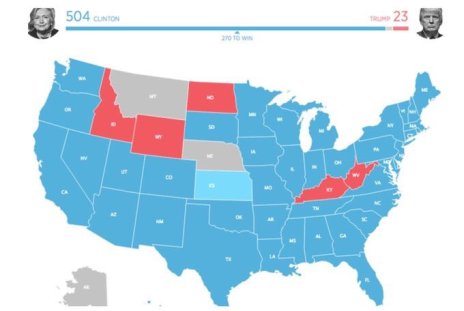
2016 Electoral Map counting votes of 18-24 year olds
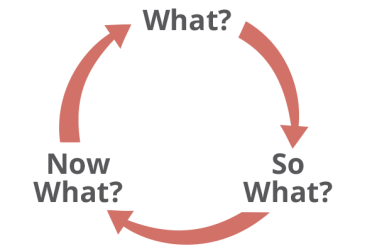
“The arc of the moral universe is long, but it bends towards justice.” Yeah, maybe so. Works for me. Or a straight line to utopia with zigs and zags or dialectical fixes, earnest resolve or plain luck, position or maneuver, hesitations or meditations, atonement or penance— ya takes your choice and press on. In any case, we know, there are gonna be setbacks. Coming up on two hundred years since the birth of a wise middle European gray beard who took all this very seriously. In his mid- twenties he wrestled himself, some distance, but never that far, from his gang of “Hegel bros” —“You guys are just philosophizing.” Me, I’m looking for some new friends, he thought, “Done with interpreting; time to change the world!” So, eyes wide and fleet of foot, through tragic 18th of Brumaire and farce of the 1848 revolutions, to the the massacre of the communards in the May 1871 “Paris Agony” we organize: “Unite the Advanced! Educate the Intermediate, Isolate the backward!” Wait, friend where are you going? Tell us, now what? “I need a fucking minute.” Gonna hang in some reading rooms, a nice lot at the British Museum, check on a few writers and critics, prophesize with my pen a while.
Jump to November 2016. Probably all gonna need a few minutes? Maybe read a thing or two? So, for starters I’m pleased to share ten essays below.
1. Richard Rorty, Achieving our Country (1998)
Members of labor unions, and unorganized unskilled workers, will sooner or later realize that their government is not even trying to prevent wages from sinking or to prevent jobs from being exported. Around the same time, they will realize that suburban white-collar workers — themselves desperately afraid of being downsized — are not going to let themselves be taxed to provide social benefits for anyone else. At that point, something will crack. The non-suburban electorate will decide that the system has failed and start looking around for a strongman to vote for — someone willing to assure them that, once he is elected, the smug bureaucrats, tricky lawyers, overpaid bond salesmen, and postmodernist professors will no longer be calling the shots . . . One thing that is very likely to happen is that the gains made in the past forty years by black and brown Americans, and by homosexuals, will be wiped out. Jocular contempt for women will come back into fashion . . . All the resentment which badly educated Americans feel about having their manners dictated to them by college graduates will find an outlet.
2. Jan Werner-Muller, Real Citizens. Boston Review .October 26, 2016
http://bostonreview.net/politics/jan-werner-muller-populism
Populists always claim that they, and they alone, represent the people. Consider Trump’s salvific boast in his speech at the Republic National Convention: “I am your voice,” with the corollary: “I alone can fix it.” This rhetoric condemns other political contenders as entirely illegitimate. The populist does not just disagree about policy; disputes are always matters of character. Other politicians are corrupt, or they put elite institutions before the people. In a word, the defining orientation of the populist is not anti-elitist or even antiestablishment (for populists are perfectly content with the establishment when they are in power) but anti-pluralist. This attitude translates into exclusions both at the level of party politics—other politicians are crooked—and at the level of citizens: opponents are likened to traitors to the nation.
3. Jedediah Purdy,Tomorrow’s Fight, Dissent, November 9, 2016.
https://www.dissentmagazine.org/blog/donald-trump-victory-tomorrow-fight-socialism
What does this mean? In the coming months, especially if Trump delivers on his promises of torture, attacks on the media, stepped-up deportation, and religiously selective exclusion, massive displays of peaceful resistance and refusal will be absolutely necessary. This may be four years of vigils. It will be time for serious discussion about the ethics of civil disobedience, not as an academic question, but in lived practice. On the one hand, we will be trying to keep the country whole, to appeal to the people against themselves, as Thoreau put it in his defense of civil disobedience….The first concern must be for the immigrants, women, people of color, and so many others that Trump attacked and belittled throughout his campaign. This means protection and solidarity against both official and private bigotry and targeting….We also must prepare for the likelihood that Trump will move from attacking the most vulnerable to betraying the rural and white working people who turned out for him. He won in part because he told them they had been betrayed by Democratic elites, and the Democrats did not succeed in refuting him. But he has nothing for those voters except a vicious identity politics that cloaks standard right-wing tax-cutting, government-slashing, and regulation-gutting. He told them they lived in a merciless world, and they agreed with him, but he has no mercy to bring. You do not have to forgive the votes for Trump, or excuse the reasons behind them, to understand that, as ever, political majorities need allies, and Trump in time will prove to be a true friend to very few people.
4. Janice Fine, Liberals and the right have been dismissing unions for years. Boston Review, November 15, 2016
https://bostonreview.net/forum/after-trump/janice-fine-where-are-unions
Unions, more than any other institution of American life, have been the vehicles through which working-class people, often across boundaries of gender, race, and ethnicity, have organized to have their say, assert their power, and ensure their share of the economic pie. For these reasons, aside from the New Deal interregnum, they have come under unceasing attack….Just when we need them most, the main institutions that have fought for decent jobs are a shadow of their former selves. Unions that have played a singular role in forging solidarity across racial, ethnic, and gender lines can now do so only for a diminishing number of Americans. Adding insult to injury, it is not just the right that has hastened their demise; liberals have been dismissing unions for years….Union locals were once citizenship schools for the working class. When unions were weakened, working-class people lost a central means through which they could develop an understanding of the world—of who was to blame for the decline in their standard of living and how to take action to correct it….Unions have been at the forefront of the fight for Social Security, unemployment insurance, Medicare, Medicaid, civil rights, affordable healthcare, occupational safety and health standards, and quality public schools. Today they are the backbone of the fight for immigrant rights, higher minimum wage, and paid sick days….It often seems that liberals think all we need do is make a good argument or speak truth to power. They disdain confrontation and the messy nature of mass-based, democratic, working-class unions. They may support some policies, such as raising the minimum wage, but not the powerful—and, yes, complicated—institutions that have made them achievable….In the absence of unions, no other institutions have arisen that have elevated the voice, needs, and aspirations of working-class people and organized at the scale they once achieved. In the absence of collective institutions, people have been known to look to charismatic men who promise to make their countries great again.
Continue reading →
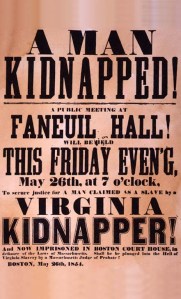 was a country.” Henry David Thoreau reflected on his bewilderment during the month between enactment and enforcement in Massachusetts of the Fugitive Slave Act in 1854. The author had been part of a very public campaign to keep the fugitive Anthony Burns from being taken back to a Virginia slaveholder. Thoreau’s unsettled waiting period reminds the essayist Jed Purdy of the present haunting November to January interregnum before the transfer of power from President Obama to the next president. Purdy admits of his own distorted relation to unfolding reality of the 2016 election. I shared a species of Purdy’s “magical thinking” in the summer and fall: it is “impossible because it is unimaginable” for Donald J. Trump to be elected. No time for hand-wringing. “We may be at the beginning of four years of vigils, civil disobedience… and the tiring reassertion, every day, of basic facts against lies that are almost official, ” writes Purdy. This, he continues “is one of the better scenarios.”
was a country.” Henry David Thoreau reflected on his bewilderment during the month between enactment and enforcement in Massachusetts of the Fugitive Slave Act in 1854. The author had been part of a very public campaign to keep the fugitive Anthony Burns from being taken back to a Virginia slaveholder. Thoreau’s unsettled waiting period reminds the essayist Jed Purdy of the present haunting November to January interregnum before the transfer of power from President Obama to the next president. Purdy admits of his own distorted relation to unfolding reality of the 2016 election. I shared a species of Purdy’s “magical thinking” in the summer and fall: it is “impossible because it is unimaginable” for Donald J. Trump to be elected. No time for hand-wringing. “We may be at the beginning of four years of vigils, civil disobedience… and the tiring reassertion, every day, of basic facts against lies that are almost official, ” writes Purdy. This, he continues “is one of the better scenarios.” 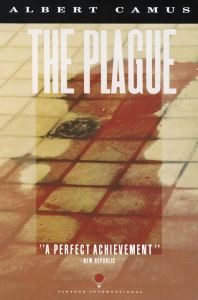 ars ago Albert Camus published The Plague his classic allegorical representation of totalitarian society. Political leaders refused and medical experts were not certain enough to call “a” plague “the” plague. The words got in the way of reality and came to “describe a world that isn’t, and create a world that should never be.” Lies become law become fact become truth. Plague or fever, it is killing half the town and Anthony Burns is the property of a Virginia plantation owner. Camus’ protagonist, Doctor Rieux asserts his purpose, his value, in saving lives. What match is official absurdity in the face of justice and dignity? Camus once wryly observed that in the French Resistance having “no reason for hope was no reason to despair.” Doctor Rieux finished his thought: “Yes, but it is no reason for giving up the struggle.”
ars ago Albert Camus published The Plague his classic allegorical representation of totalitarian society. Political leaders refused and medical experts were not certain enough to call “a” plague “the” plague. The words got in the way of reality and came to “describe a world that isn’t, and create a world that should never be.” Lies become law become fact become truth. Plague or fever, it is killing half the town and Anthony Burns is the property of a Virginia plantation owner. Camus’ protagonist, Doctor Rieux asserts his purpose, his value, in saving lives. What match is official absurdity in the face of justice and dignity? Camus once wryly observed that in the French Resistance having “no reason for hope was no reason to despair.” Doctor Rieux finished his thought: “Yes, but it is no reason for giving up the struggle.”
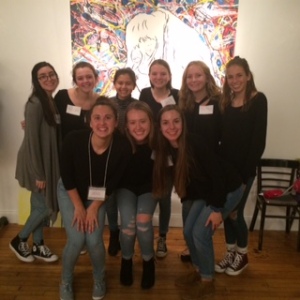 rt Flynn , national president of
rt Flynn , national president of June
June Nash, We Eat the Mines and the Mines Eat Us (1979) and Michael Taussig, The Devil and Commodity Fetishism in South America (1980)— taking an “incomplete” and walking in commencement any way (for Mom). I went off to Tonga as a field ethnographer disguised as a Peace Corps Volunteer. I would come back in two years with a paper for Faris that strictly outlined the boundaries of a “practice.” One that was “ideological”— it did not feed anybody, clothe anybody, or house anybody— but was “appropriate” to the social relations. I learned the language and looked around. Is that base or superstructure? An ISA? Hegemonic? Or just plain functional? Men sat in circles drinking kavatonga all night, women sat in circles laughing and pounding mulberry bark into tapa cloth all day (mostly laughing), and everyone fearing mehikitanga, their father’s eldest sister. Before long, the strange became familiar— I couldn’t write about it— I failed. “It is simple. I’m not an anthropologist. I don’t have the proper training for fieldwork.” I turned to my Taussig and Nash notes and from a tiny Pacific I
Nash, We Eat the Mines and the Mines Eat Us (1979) and Michael Taussig, The Devil and Commodity Fetishism in South America (1980)— taking an “incomplete” and walking in commencement any way (for Mom). I went off to Tonga as a field ethnographer disguised as a Peace Corps Volunteer. I would come back in two years with a paper for Faris that strictly outlined the boundaries of a “practice.” One that was “ideological”— it did not feed anybody, clothe anybody, or house anybody— but was “appropriate” to the social relations. I learned the language and looked around. Is that base or superstructure? An ISA? Hegemonic? Or just plain functional? Men sat in circles drinking kavatonga all night, women sat in circles laughing and pounding mulberry bark into tapa cloth all day (mostly laughing), and everyone fearing mehikitanga, their father’s eldest sister. Before long, the strange became familiar— I couldn’t write about it— I failed. “It is simple. I’m not an anthropologist. I don’t have the proper training for fieldwork.” I turned to my Taussig and Nash notes and from a tiny Pacific I sland wrote a great paper critical of both the obscurantist (Taussig) and the materialist (Nash) takes on ritual propitiations by Bolivian tin miners. They never really
sland wrote a great paper critical of both the obscurantist (Taussig) and the materialist (Nash) takes on ritual propitiations by Bolivian tin miners. They never really  satisfied the Faris seminar’s first question: “what are the boundaries of the practice?” Canned beef stew instead of a sacrificial goat, Nash observed, during a Bolivian revolutionary moment in 1970s —“We are being paid by the hour not by weight this season! Put down the machete bring me a can opener!” one imagines the cry of labor victorious. Ok, not only am I not an anthropologist, but, maybe, neither are they! Is it even possible— this social science?
satisfied the Faris seminar’s first question: “what are the boundaries of the practice?” Canned beef stew instead of a sacrificial goat, Nash observed, during a Bolivian revolutionary moment in 1970s —“We are being paid by the hour not by weight this season! Put down the machete bring me a can opener!” one imagines the cry of labor victorious. Ok, not only am I not an anthropologist, but, maybe, neither are they! Is it even possible— this social science? criticize, and mind the gap between what is and what can be. How? The big smile and nurturing guidance from James Faris offered a route in his final words to a UConn undergraduate class- “Sure, take your major in Anthropology! And face it you’re all going to end up working in the Connecticut
criticize, and mind the gap between what is and what can be. How? The big smile and nurturing guidance from James Faris offered a route in his final words to a UConn undergraduate class- “Sure, take your major in Anthropology! And face it you’re all going to end up working in the Connecticut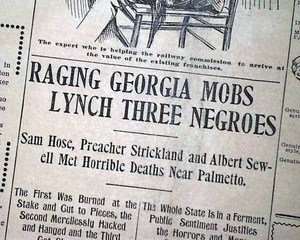 nstruction in America 1860-1880 (1935), but have it on my shelf. Eric Foner read it for all of us. DuBois says the American Civil War was a “general strike,” I tell my students. Seems obvious to me. I have read Souls of Black Folk (1903), more than once, and teach about “double consciousness,” and the
nstruction in America 1860-1880 (1935), but have it on my shelf. Eric Foner read it for all of us. DuBois says the American Civil War was a “general strike,” I tell my students. Seems obvious to me. I have read Souls of Black Folk (1903), more than once, and teach about “double consciousness,” and the 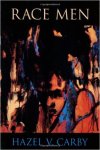 understand even while we are unable to explain. I’d like to join with Professor Appiah and the others to explore the content and context of Dubois’s German education, his “cosmopolitan nationalism,” and critically his life, work and influence back on American soil as “race man” (Carby,2000) in every decade from the 14th amendment to the Civil Right Act of 1964.
understand even while we are unable to explain. I’d like to join with Professor Appiah and the others to explore the content and context of Dubois’s German education, his “cosmopolitan nationalism,” and critically his life, work and influence back on American soil as “race man” (Carby,2000) in every decade from the 14th amendment to the Civil Right Act of 1964. 
